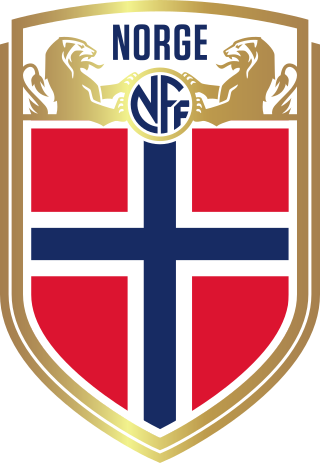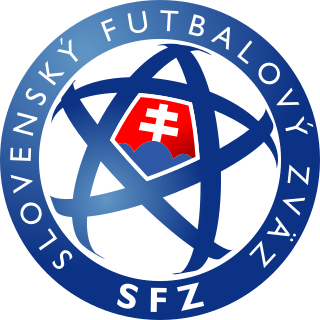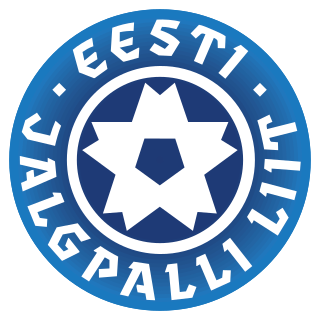
The Norway national football team represents Norway in men's international football, and is controlled by the Norwegian Football Federation, the governing body for football in Norway. Norway's home ground is Ullevaal Stadion in Oslo and their head coach is Ståle Solbakken. Norway has participated three times in the FIFA World Cup, and once in the UEFA European Championship (2000).

The Hungary national football team represents Hungary in men's international football, and is controlled by the Hungarian Football Federation. The team has made nine appearances in the FIFA World Cup, and five appearances in the UEFA European Championship. Hungary plays their home matches at the Puskás Aréna, which opened in November 2019.

The Slovakia national football team represents Slovakia in men's international football competition and it is governed by the Slovak Football Association (SFZ), the governing body for football in Slovakia. Slovakia's home stadium from 2019 is the reconstructed Tehelné pole in Bratislava. Slovakia is one of the newest national football teams in the world, having split from the Czechoslovakia national team after the dissolution of the unified state in 1993. Slovakia maintains its own national side that competes in all major tournaments since.

The India national football team represents India in international football and is governed by the All India Football Federation (AIFF) and is under the global jurisdiction of FIFA. It is governed in Asia by the Asian Football Confederation (AFC) and in South Asia by South Asian Football Federation (SAFF), both of which were co-founded by the Indian team's supervising body, the AIFF.

The Cyprus men's national football team represents Cyprus in international football and is controlled by the Cyprus Football Association, the governing body for football in Cyprus. Cyprus' home ground is currently the AEK Arena in Larnaca, and the current coach is Temur Ketsbaia.

The Finland men's national football team represents Finland in men's international football competitions and is controlled by the Football Association of Finland, the governing body for football in Finland, which was founded in 1907. The team has been a member of FIFA since 1908 and a UEFA member since 1957.

The Estonia men's national football team represents Estonia in international football matches and is controlled by the Estonian Football Association, the governing body for football in Estonia. Estonia's home ground is Lilleküla Stadium in the capital city Tallinn.

The Ukraine men's national football team represents Ukraine in men's international football and is governed by the Ukrainian Association of Football, the governing body for football in Ukraine. Ukraine's home ground is the Olimpiyskiy Stadium in Kyiv. The team has been a full member of UEFA and FIFA since 1992.

The Costa Rica national football team represents Costa Rica in men's international football. The national team is administered by the Costa Rican Football Federation (FEDEFUTBOL), the governing body for football in Costa Rica. It has been a member of the Fédération Internationale de Football Association (FIFA) since 1927, the Confederation of North, Central American and Caribbean Association Football (CONCACAF) since 1961, and a member of the Central American Football Union (UNCAF) since 1990.

The El Salvador national football team represents El Salvador in international football, and is governed by the Salvadoran Football Federation (FESFUT).

The Jordan national football team represents Jordan in international football and is controlled by the Jordan Football Association. Jordan have never qualified for the World Cup finals but have appeared four times in the Asian Cup and reached its quarter-final stage in the 2004 and 2011 editions.

The Lebanon national football team, controlled by the Lebanese Football Association (LFA), have represented Lebanon in association football since their inception in 1933. The squad is governed by the Asian Football Confederation (AFC) continentally, and FIFA worldwide. While Lebanon have yet to qualify for the FIFA World Cup, they have qualified three times to the AFC Asian Cup: they first participated in 2000, when they hosted the event. Lebanon's main venue is the Camille Chamoun Sports City Stadium in Beirut; however they also play in other locations such as the Saida Municipal Stadium in Sidon.

The Scotland women's national football team represents Scotland in international women's football competitions. Since 1998, the team has been governed by the Scottish Football Association (SFA). Scotland qualified for the FIFA Women's World Cup for the first time in 2019, and for their first UEFA Women's Championship in 2017. As of June 2023, the team was placed 23rd in the FIFA Women's World Rankings. Although most national football teams represent a sovereign state, as a member of the United Kingdom's Home Nations, Scotland is permitted by FIFA statutes to maintain its own national side that competes in all major tournaments, with the exception of the Women's Olympic Football Tournament.
The four teams in this group would play against each other once. The group winner and runner-up would qualify for the 1938 FIFA World Cup held in France.
The 1938 FIFA World Cup qualification Group 6 took place from January to March 1938. Hungary as the strongest team of this group was seeded. Greece and Mandatory Palestine would play against each other on a home-and-away basis. Hungary would play against the winner at home. The winner would qualify for the third FIFA World Cup held in France.
This is a list of the Nepal national football team results from the oldest known record to the present day only
This is a record of the Israel national team's results at the FIFA World Cup. They have qualified for the tournament on one occasion, in 1970. Israel qualified for the 1970 World Cup as an Asian team. Nowadays Israel competes in the European zone, as well as a full member of UEFA since the 1990s.
This is a record of Cuba's results at the FIFA World Cup. The FIFA World Cup is an international association football competition contested by the men's national teams of the members of Fédération Internationale de Football Association (FIFA), the sport's global governing body. The championship has been awarded every four years since the first tournament in 1930, except in 1942 and 1946, due to World War II.
In the 1938 FIFA World Cup qualification Group 3, the two teams played against each other on a home-and-away basis. The winner Poland qualified for the third FIFA World Cup held in France.
In the 1938 FIFA World Cup qualification Group 5, the two teams played against each once on neutral ground. The winner Switzerland qualified for the third FIFA World Cup held in France.












